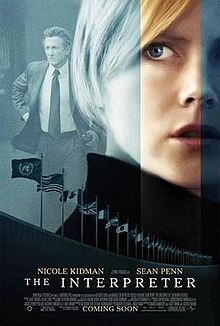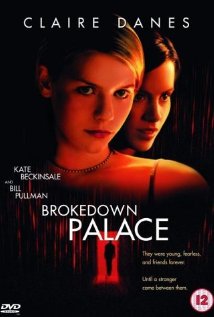Tags
be yourself, catechesis, Catholic, cinema, Comedy, Date Doctor, Eva Mendes, faith, friend, Hitch, Kevin James, Love, ministry, movie, movie ministry, Romance, true self, Will Smith
 What most attracted you to your significant other, or any of your friends? Why do we think we have to be the “ideal” rather than ourselves when we meet people, especially those we consider potential mates? Hitch deals with just those questions. But, rather than bolstering the self-esteem of the clients he works with, he tries to teach them how to be cool to attract the object of the client’s affection.
What most attracted you to your significant other, or any of your friends? Why do we think we have to be the “ideal” rather than ourselves when we meet people, especially those we consider potential mates? Hitch deals with just those questions. But, rather than bolstering the self-esteem of the clients he works with, he tries to teach them how to be cool to attract the object of the client’s affection.
Hitch, played by Will Smith, takes on a client named Albert Brennaman (played by Kevin James) who has totally lost it over the beautiful socialite Allegra Cole (played by Amber Alletta). Hitch also has his own love interest, with whom his relationship has a much bumpier time getting off the ground. Add to all that, that Hitch’s girl, Sara Melas (played by Eva Mendes) is a reporter trying to expose the so-called “date doctor.” It makes for a funny, but very meaningful film.
At first it appears that Hitch’s smooth lines, grooming tips and list of dating dos and don’ts are really the way to the heart of the girl of your dreams. And, while they do help, somehow it turns out that when the true feelings are exposed it’s when those brief glimpses of the real person are shown that the connection is really made. So, I think this can best be summarized as “be courteous (as we all should), but be yourself.” What good is it to work so hard to attract someone if you have to keep up a false facade? It’s too hard to keep up that mask, and one day you’ll both wake up wondering who you really are. Albert is told not to dance, but he does anyway when he thinks Allegra isn’t watching. He’s told not to use his inhaler, but he does anyway (then chucks it in a sudden burst of courage). He just can’t hold his true self in. Similar things happen to Hitch. Despite his attempt to be cool and suave, an allergic reaction not only makes him look like he has some sort of disease, the medication he takes for it make him talk and say things he would never say if he wasn’t under the influence.
Another point to be made in this movie is “Don’t jump to conclusions!!!!” We tend to pigeon-hole people into areas based on what we see and in the process we might miss out on getting to know someone wonderful. We see a great example of this with the whole Albert and Allegra part of the movie. No one can see what she sees in him, both in his appearance and awkwardness. It makes the idea that there is a mysterious date doctor out there so much more probable.
On that same track, Sara’s friend Casey, has a one night stand with a man she thinks she has a connection to. As he’s leaving, he comments “date doctor my a**” which she takes to mean that she’s been played by someone who’s a client of Hitch’s. However, in reality, Hitch refused to work with Casey’s one-night-wonder because he tries to connect people who are in love, not just out for tail. So, Casey shares the story with her bestie, Sara, who ultimately learns that Hitch is the date doctor. Then, rather than confront him about it, she blows up in a truly psychotic fashion and exposes him publicly, which then puts Albert and Allegra in the hot seat with him, along with many of Hitch’s former clients.
Another thing is look in this film is to look for the good in others. If you are looking for the good, you’ll see their soul, which has the capacity to be beautiful for eternity. But if you’re looking for what looks good, those looks are fleeting and won’t really satisfy you at the end of the day. I hope it goes unsaid that if you look at the soul and see evil – just run. If they don’t treat people well – and I’m talking bums to bosses, they probably won’t treat you well. Granted, everyone has the capacity to change… but you can’t make them do it, it has to come from within themselves.
Hitch makes a plea to Sara at one point explaining what he does as trying to get women (as most of his clients are men) to get out of “their own way” (of being) so that they will even give guys like Albert a chance. How often do we have preconceived notions of our “type.” We find it easy to blow off potential mates by saying that he or she isn’t our type. But what would happen if we dropped our idea of type to try to get to know someone who may not be the type we planned for ourselves, but the type we are called to love. In most great relationships, there is a balance. Couples complement each other. “Complement” meaning complementary personalities, skills and demeanor, not that they give complements to each other constantly (which could be nice, too)… They really can’t be too alike or complete opposites. There’s something there, but sometimes we just have to look beyond the surface.
Love versus sex. Since Hitch refuses to work with those who are just out for sex, we see that this date doctor is a likable guy who, despite his methods, is really a romantic. And, Hitch’s idea that the pursuit of love is more honorable than the pursuit of sex is pretty consistent with the rest of the characters. We see those in pursuit of sex portrayed as shallow and loathsome. While a lot of movies out there portray characters who learn that love is better than sex, this is one of the few that portrays it all the way through and doesn’t have to show the big conversion.
Hitch is rated PG-13 for some language and strong sexual references, but there isn’t an actual sex scene, which is refreshing. And, due to the love versus sex undertones, some discussion of sex actually seems appropriate to get the point across.
For more info, check out http://www.imdb.com/title/tt0386588/






